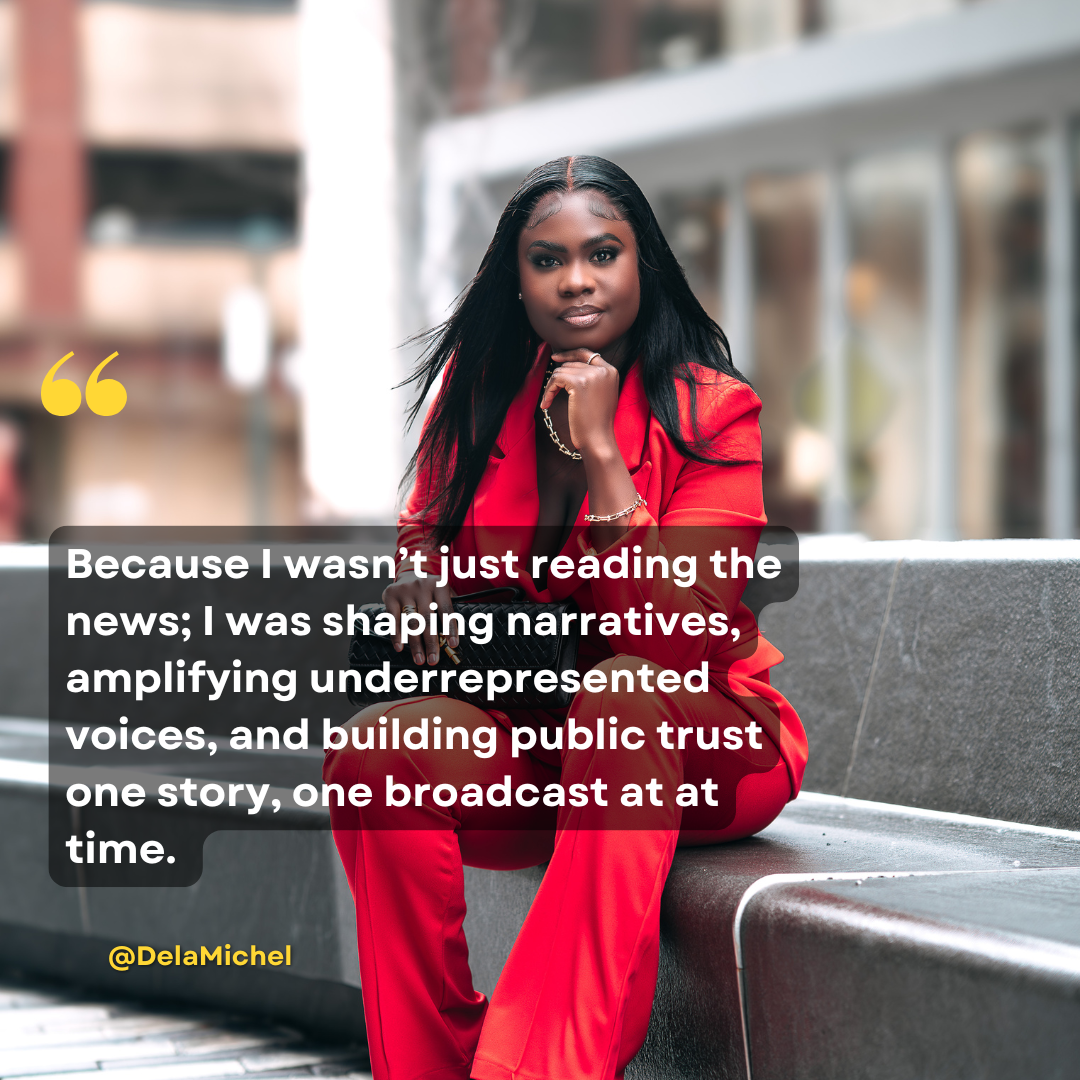Before the Cameras Roll: The Grit, Grace, and Grind of Journalism
“Will your profession still be your passion even when you’re not paid?”
I recently found myself at a career and networking event hosted by Howard University’s Ghanaian Student Union, an energetic gathering called GSU Gateway. The panelists came from diverse professional backgrounds like business, tech, law, and public service but none from the media. That’s okay though. I told them, “We’ll get the next invite.”
After the session, it was time to network, and engaging a few students I was eager to make a case for us media personalities. The first thing I asked, of course, was, “Why no media person on the panel?” I followed with a smile and added, “Our profession is just as demanding as any other and maybe even more intense. "As I began sharing bits of my experience, I noticed how their expressions changed, surprised, attentive, and maybe even a little fascinated.
When I began my career as a journalist some ten years ago, my day typically started at 6:00 AM. Being a broadcast journalist means syncing your life with the unpredictable rhythm of the news cycle and sometimes, that rhythm starts before breakfast.
Back then, before stepping out, I’d tune into competing networks. I needed to catch up on what I missed overnight and get a sense of what everyone was talking about. Every reporter was expected to walk into the newsroom with at least one strong story idea. No excuses.
The newsroom, as I often say, isn’t just a place, it’s a mindset. It's fast, focused, and sometimes ferocious. Senior reporters would remind us how intense it used to be: “There was no time for chit-chat. If you weren't sharp, you got left behind.”
And as a newbie? I learned the hard way how to pitch, shoot, write, edit, produce. No part of the process was skipped. You were your own newsroom.
Through all that, these key questions echoed in my mind daily:
What’s the angle?
Who’s the audience?
What platform is this for?
Can we make it engaging without losing accuracy?
Some days, I was in front of the camera which was usually live reports, piece to camera. Other days, I was editing, fact-checking, scripting, tweaking captions, or diving into analytics to see what worked. But all of that had to be done fast. Because while you’re editing one story, another bulletin is on the horizon. Mid-morning, then afternoon, then evening. The cycle doesn’t stop.
I’d book interviews, assist with production, chase down sources, and cover field reports. Whether I was talking to an educator about digital literacy or interviewing a local vendor for a human-interest piece, I had to stay alert. And every story had a deadline. If it didn’t air in time? All that effort is gone.
The evening bulletin was sacred. Time-bound stories needed to be ready by then with no exceptions. And if I was anchoring, that meant an even earlier start: wake up by 4:00 AM, make it to the studio for makeup, script edits, and go live for the 6:00 AM bulletin.
After that? Head straight to the radio studios for the 7:00 AM news. By midday, I was back to working on stories, maybe two or more while prepping for the 12:00 PM bulletin, and eventually, the 7:00 PM wrap-up.
I’d get home past 10:00 PM most nights exhausted, but interestingly fulfilled.
Sounds intense, right? It is. There were days I forgot to eat, skipped breaks, and operated without an “off” switch. But here's the truth, I loved every moment of it. The chaos, the pressure, the adrenaline rush was the price I was willing to pay for a profession I deeply believe in. Because I wasn’t just reading the news; I was shaping narratives, amplifying underrepresented voices, and building public trust one story, one broadcast at a time. And to be honest? The sacrifices have paid off. They still are. This is more than a job, it's a calling. One I’m proud to answer, every single day.
I told the students:
“Media isn’t just about the beautiful anchors you see on screen. It’s about being in sync with the world, constantly learning, constantly adapting.”
Because being a journalist means being curious, agile, and authentic.
It’s not just about breaking the new, it’s about telling stories that stay with people.
I remember just before starting this job, my employer looked me in the eye and asked, “Why this job?” Without hesitation, I said, “Because I’m passionate about it.”
Then came his follow-up: “Will it still be your passion even when you’re not paid?”
That question stuck with me. It challenged me. And over the years, it has fueled me even more.
Today, I’m still grinding, still passionate whether I’m on air or behind the scenes. Paid or unpaid, this work is part of who I am.
Because true passion isn’t seasonal. It’s consistent. It shows up even when the cameras don’t.
